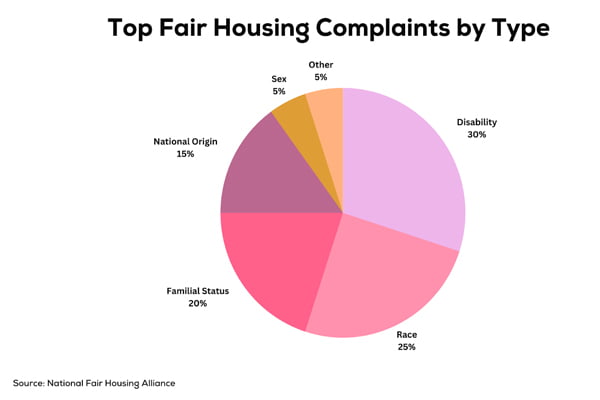As a property manager, you must follow many important laws and regulations. If you break any of these rules, it can lead to some big problems. You might have to pay large fines. Tenants could file lawsuits against you. Your reputation as a manager will suffer. In the worst case, you could even lose your real estate license altogether.
So, it is essential to know about all the rules that apply to property managers and rental housing. You must understand these rules very well. And you need to follow them in your day-to-day operations consistently. Staying fully compliant with all the different laws can feel complicated. Making the effort protects your business and demonstrates you ethically manage properties.
In this article, we will look at the key legal and regulatory compliance issues a property manager needs to focus on. We will also review some smart strategies you can use to effectively. To meet your obligations and reduce risks as much as possible. Let’s get started!
Areas of Focus for Compliance
Some key parts of property management have legal rules to follow:
Fair Housing
Federal and state laws ban discrimination against renters. This is based on things like race, religion, gender, disabilities and whether they have kids. Local laws may add more protected groups.

Leases and Rent
Leases need certain terms, notices, and disclosures by law. Rules cover rent increases, deposits, termination notices, and more. Some cities add extra rent rules.
Repairs and Maintenance
Laws apply to keeping units safe and livable. These cover mold, lead paint, fire alarms, and other hazards. To ensure these regulations are met, you must therefore ensure you have a good rapport with various contractors, including plumbers and electricians, as well as companies offering professional carpet cleaning in Portland, OR (and any other deep, end-of-tenancy cleaning wherever your property is located).
Privacy
Federal and state laws govern handling sensitive applicant and tenant details. This includes security and information sharing.
Money Management
How you handle money, taxes, expenses, and rent must follow accounting and banking rules.
Licensing
Most states require a real estate license to show, lease units, and interact with tenants. You need to keep the license current.
Ongoing education on changing laws keeps property management companies compliant and ethical.
Key Fair Housing Compliance Practices
Fair housing laws aiming to prevent discrimination are some of the most extensive regulations governing property managers. Some best practices include:
Documenting Tenant Selection
Keep records detailing your objective reasons for accepting or rejecting applicants to counter any claims of illegal discrimination.
Regular Fair Housing Training
Ensure all staff complete training on fair housing rules and prohibitions at least annually, including during onboarding.
Advertising Legally
Avoid language or visuals in ads implying preferences for certain demographics. Stick to facts on the property.
Objective Procedures
Draft standardized, non-discriminatory procedures for areas like tenant screening, rental terms, property rules, maintenance prioritization and information collection.
Responding to Accommodation Requests
Have a formal process to review and act upon reasonable accommodation requests related to disabilities promptly.
Limited English Proficiency Plans
Be prepared to obtain translation or interpretation assistance to ensure critical communications are understandable for non-English speakers if needed.
Neutral Policies
Regularly review property policies, rules, fees, procedures and forms for any unintentional discrimination risk and revise accordingly.
Fair Housing Postings
Display required fair housing informational posters and notices prominently in rental offices. Include the HUD hotline for reporting complaints.
Staying up to date on evolving state and local protected classes is important too. Ensure you know the differences in requirements across all jurisdictions where you operate.
Smart Strategies for Effective Compliance
Use a calendar to track deadlines for renewals, inspections, taxes, notices, training and postings.
Keep organized records of leases, receipts, repairs, inspections, tenant files and training. This makes compliance easier to review.
Write step-by-step procedures for all management processes like move-outs, refunds, inspections, notices, rent collection and repairs. Train on following them.
Use current lease agreements a lawyer reviewed instead of old forms. Update them as laws change.
Have access to lawyers to ask about laws, lawsuits, accommodations, leases and more that need expertise.
Give tenants all required rules, notices and disclosures rather than waiting for requests.
Take continuing education classes. And join professional groups to stay updated on changing regulations. Sign up for law and compliance newsletters too.
Conducting Self-Audits
Regular self-audits help identify any areas of non-compliance to address:
Fair Housing
Review tenant records, ads, and policies for discrimination risks
Verify training is current for all staff
Confirm required fair housing notices posted
Leasing
Check lease agreements follow laws and include mandatory disclosures
Test rent increase notices meet timing rules
Validate security deposit handling complies with state laws
Maintenance
Inspect a sample of units for compliance with safety codes
Check maintenance records to show timely response
Verify lead paint and mold prevention procedures followed
Privacy
Ensure tenant consent forms are obtained for any data sharing
Confirm secure storage for tenant records
Review data protection provisions in vendor agreements
Financial
Compare accounting methods and rent receipting to applicable regulations
Verify all state and local taxes filed and paid on time
Validate licensing on active status with all fees current
Self-audits quickly reveal areas needing attention to shore up compliance gaps.
Responding to Complaints or Violations
If serious complaints or compliance violations occur:
Contain the Situation
Limit additional damage by immediately halting any ongoing non-compliant activity. Preserve evidence.
Consult Legal Counsel
Involve qualified legal counsel early in determining a response strategy and next actions.
Cooperate with Investigators
If governmental regulators become involved, comply fully with document requests and questions to demonstrate a willingness to resolve issues.
Implement Corrective Actions
Develop and execute a corrective plan to fix underlying compliance failures, strengthen controls to prevent recurrence, and address any impacts of the violations.
Communicate Responsibly
Be prompt, transparent and accountable in communicating internally and externally about the situation, correction plan, and measures to prevent future issues. Ongoing engagement can rebuild trust.
Learn and Improve
Analyze the root causes that led to violations to identify any needed improvements in training, policies, processes, monitoring or documentation practices. Continuously improving compliance practices reduces risk.
Staying focused on compliance may not always seem the priority amidst handling properties and tenants. But doing it right from the start minimizes negative surprises and legal headaches. Protect yourself and your business by making compliance a priority.
FAQs
What are the penalties for fair housing discrimination?
If someone breaks the rules and discriminates against others in housing, here’s what can happen:
They might have to pay money to the people they harmed.
The government can make them pay fines, of up to $20,000 for their first offense.
They might have to give back what they took from others.
They could be told to get training to follow the rules.
And their reputation can get hurt.
When should a property manager obtain guidance from legal counsel?
Anytime questions arise regarding legal interpretation, lawsuits, alleged violations, reasonable accommodation requests, lease review, or other compliance matters requiring expertise.
What ongoing fair housing training is required?
HUD guidelines recommend landlords and managers receive comprehensive training followed by refresher training annually. Many state laws also now mandate regular fair housing education.
What are the best practices for maintenance documentation?
Log all maintenance requests when received, with resolution notes
Keep detailed records of repairs listing dates, actions taken, parts, labor
Record dates, findings, and photos from all unit inspections
Thorough documentation proves you meet habitability and safety requirements. It also protects you in case of lawsuits.
















